This month we bring you news from Colombia, Venezuela, Brazil, Bolivia, Paraguay, Uruguay, Argentina and Chile. Amnesty has issued three Urgent Actions: Calling on the President and Defence Minister to enact Police Reform in Colombia; calling for the provision of care and release of Guillermo Zárraga, who is seriously ill in prison in Venezuela; and calling on the Bolivian authorities to allow Amparo Carvajal, an 84-year-old human rights defender and his team, to return to their office. Please follow the links in the country sections below to sign these actions.
REGIONAL
In an open letter to heads of state attending the 53rd General Assembly of the Organization of American States (OAS), Amnesty has called on States in the region to address the closure of civic space, end repressive policies and respond to the social demands of their populations. Amnesty’s concerns include the excessive use of force to suppress social protests (seen most recently in Peru), restrictive and inhumane migration policies towards people fleeing human rights abuses (for example in Peru and Chile), intensified use of the armed forces for public security tasks (such as in Ecuador) and killings of Indigenous leaders (including in Brazil, Colombia and Ecuador) in the context of land-related conflicts. Amnesty noted that Colombia was the world’s deadliest country for human rights defenders in 2022, with at least 186 killings, with Brazil in third place with at least 26.
COLOMBIA
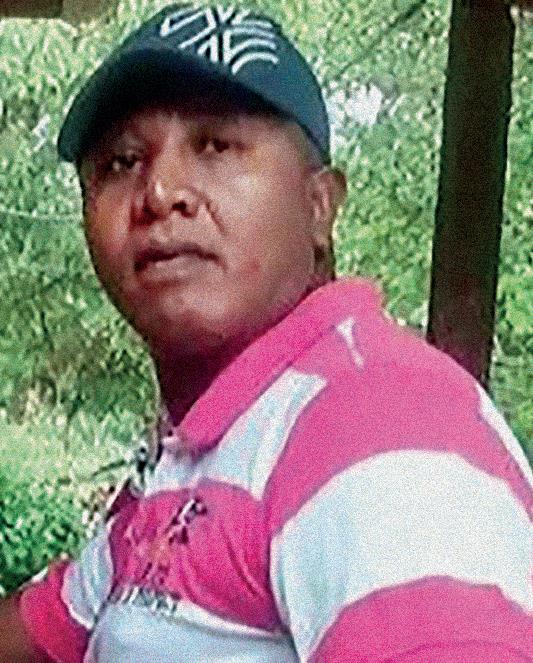
Amnesty International continues its campaign to reform the National Police, which Amnesty holds responsible for the death, torture, blinding, disfigurement, rape, and sexual violence against numerous demonstrators during the 2021 National Strike. Amnesty International and its allies, members of the Police Reform Roundtable, urge President Petro and Defence Minister Velásquez to initiate structural reform of the police with the participation of Colombian civil society. Please sign the letter here. Please send copies to: Nancy Benítez Páez, Chargée d’Affaires, Embassy of Colombia, 3 Hans Crescent, London SW1X 0LN; email: elondres@cancilleria.gov.co
197 human rights defenders and social leaders were killed in 2022, a 42% increase on 2021, reports Programa Somos Defensores (We are Defenders Programme) in its annual report. Multiple armed groups are fighting over territory, illicit mining and the drug trade, which was more restrained in 2021 when the security forces were heavily deployed to counter the massive demonstrations during the National Strike. Indigenous communities were particularly hard hit by this violence in 2022. President Petro’s policy of Total Peace, which started well by negotiating ceasefires with several armed groups and a new policy which pivots the security forces prime objective to protect civilians and their leaders, has yet to bear fruit on the ground. Somos Defensores cites Crisis Group saying ‘If there is no military pressure then it is all a romantic dream’.
Prosecutors have charged 25 military officials of ‘killing protected persons’ over the raid that killed 11 people in the village of El Remanso, Putumayo, on 28 March 2022. The army claimed that they had killed FARC guerrillas, when in fact they were unarmed local civilians. The cases are filed under the civilian justice system rather than its military equivalent, an important measure to ensure judicial independence.
The indigenous Wayúu community of La Guajira, on the northeast coast of Colombia, are opposing the building of a huge wind farm less than two kilometres from their coast. The Wayúu rely on artisan fishing and tourism for most of their income and claim that the wind farm will seriously harm their livelihood and the environment The community has not been consulted on the plans, which have been elaborated by the Spanish firm Blue Float and approved by the Maritime General Directorate (DIMAR).
The former Truth Commission investigator, Andres Celis, has been forced into exile following two robberies and multiple death threats. He believes this is related to his interview with ‘Otoniel’, the leader of the paramilitary Gaitanista Self-Defence Forces of Colombia. Celis believes that the Public Prosecutor has no intention of investigating these threats.
VENEZUELA
Amnesty International has issued a new Urgent Action for Guillermo Zárraga, a 59 year old Venezuela engineer, was detained in November 2020 at his home by officers from the General Directorate of Military Counterintelligence. Since then, he has been charged and tried for criminal association and for allegedly revealing national security information. There is no evidence to support these allegations. Guillermo’s health situation has suffered severely as result of inhumane detention conditions and lack of adequate nutrition. In March he suffered a cardiac syncope, and the blood test results show a severe imbalance that needs urgent and trusted medical care.
Amnesty is asking everyone to take action calling for his release from arbitrary detention and the provision of medical care whilst he is still in custody of the state. To do so, we are encouraging members to send this letter to the Venezuela Minister of Penitentiary Affairs and to the Venezuelan ambassador here in the UK (addresses in the linked letter), or to send the below tweet to the Minister, linking in UN High Commission for Human Rights Volker Turk.
Minister @CelsaBautistaO, Guillermo Zárraga’s life is at risk due to lack of medical care in prison. Seeing as you visited that same prison on 26 May, we expect your immediate action to guarantee Guillermo’s health and life. CC: @volker_turk
More broadly, Amnesty has issued a public statement, in Spanish, expressing concerns regarding the growing number of individuals in Venezuela being persecuted by the state authorities. The urgent action regarding Guillermo is the most recent in a series of Urgent Actions issued on Venezuela relating to individuals, which have included Emirlendris Benítez and Javier Tarazona.
The International Criminal Court has given the go-ahead for the resumption of the investigation in Venezuela, which aims to uncover human rights violations committed by the Maduro government. The allegations focus on the deprivation of physical liberty, torture, rape, and other forms of sexual violence. The investigation had been halted after the Venezuelan government asked the court in April 2022 to defer to the government’s own inquiries.
Human Rights Watch have raised concerns regarding the Venezuela National Assembly’s recent decision to appoint new members to the National Electoral Council, which threatens the already challenged prospect of free and fair presidential elections, scheduled for 2024, occurring. The electoral body has been previously packed with allies of former president Hugo Chavez and current president Nicolas Maduro.
BRAZIL
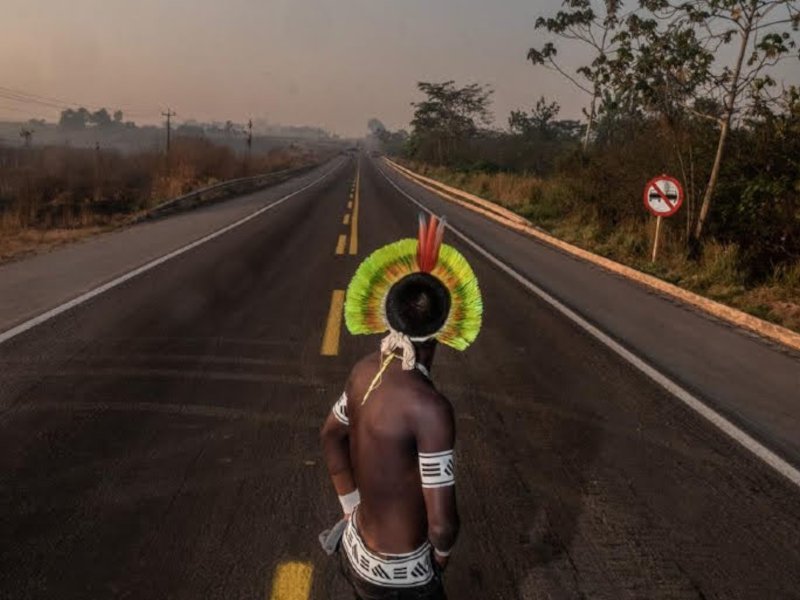
Amnesty International expresses profound concern regarding the consideration of Bill 2903/2023 by the Brazilian Senate, which pose a direct threat not only to the territories that Indigenous peoples currently occupy, but also those which they have traditionally owned, occupied, or made use of. These territories hold critical importance in safeguarding the Amazon rainforest and other Brazilian biomes, as well as the rights and well-being of its Indigenous communities.
The Electoral Court’s judges have banned former President Bolsonaro from running for office for eight years. The judges found that Bolsonaro abused his powers when he pedalled ‘immoral’ and ‘appalling lies’, including the claim that the electronic voting machines were unreliable, during last year’s hotly contested election, He was beaten by Lula by less than 2 percentage points.
In a meeting with Brazilian officials, experts of the UN’s Human Rights Committee praised Brazil for its Mandela plan to improve conditions in its prisons. However, they condemned the excessive and sometimes lethal police violence had been unacceptably high for more than a decade and the victims were disproportionately young Afro-Brazilian men from poor communities. Hate speech was another concern.
The Guardian reports that Brazil has charged the leader of a ‘transnational illegal fishing network’ of ordering the killing of the British journalist Dom Phillips and the environmentalist Bruno Pereira last year in the Amazon region. Two fishermen have also been charged with the murder.
Indigenous communities and NGOs such as Amazon Watch are concerned at the Government’s plan to build a 933 km railway from Mato Grosso state through the Amazon region to the port of Miritituba in Para state on the northeast coast of Brazil. The railway would transport soya and corn to the port from one of Brazil’s most agricultural states. This would pass through indigenous lands and indigenous leaders are demanding their right to be consulted and have vowed to fight for compensation for the impacts already felt in their territories long before the project left the drawing board.
BOLIVIA
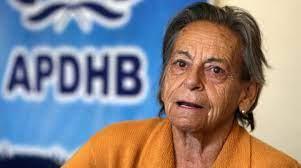 Amnesty has issued an Urgent Action in respect of Amparo Carvajal, an 84-year-old human rights defender and the president of the Permanent Assembly on Human Rights in Bolivia (APDHB). On 2 June, dozens of people raided the APDHB’s office in La Paz and forced staff to abandon the premises. Since then, Amparo and colleagues have been sleeping on the street outside the offices as a form of protest, and to attend to victims who seek support. The APDHB offices remain occupied, and dozens of police are blocking the entrance. Amnesty is calling on the authorities to allow Amparo and members of the APDHB to enter the offices to carry out their work, as well as guarantee their health, physical integrity, and safety.
Amnesty has issued an Urgent Action in respect of Amparo Carvajal, an 84-year-old human rights defender and the president of the Permanent Assembly on Human Rights in Bolivia (APDHB). On 2 June, dozens of people raided the APDHB’s office in La Paz and forced staff to abandon the premises. Since then, Amparo and colleagues have been sleeping on the street outside the offices as a form of protest, and to attend to victims who seek support. The APDHB offices remain occupied, and dozens of police are blocking the entrance. Amnesty is calling on the authorities to allow Amparo and members of the APDHB to enter the offices to carry out their work, as well as guarantee their health, physical integrity, and safety.
PARAGUAY
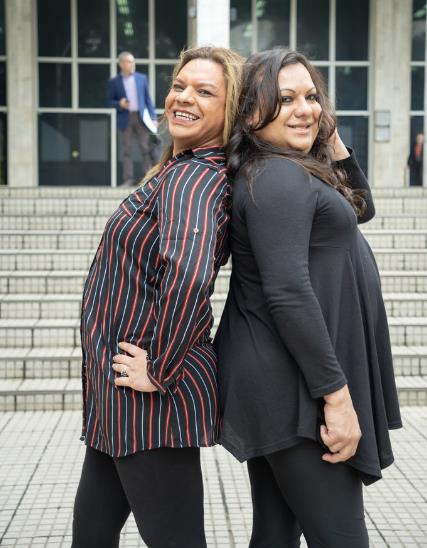 Yren Rotela and Mariana Sepúlveda featured in last year’s Write for Rights campaign. They have been fighting for years to change their legal names, so that they can get documentation that recognises them as trans women.Throughout their lives, they have faced discrimination, bullying and harassment. Amnesty has recently added their case to the Individuals at Risk portfolio and we shall shortly write to Local Groups seeking expressions of interest in taking on the case. This emblematic case has a wider objective of persuading Paraguay to recognise the legal identity of trans people so that they can exercise their rights.
Yren Rotela and Mariana Sepúlveda featured in last year’s Write for Rights campaign. They have been fighting for years to change their legal names, so that they can get documentation that recognises them as trans women.Throughout their lives, they have faced discrimination, bullying and harassment. Amnesty has recently added their case to the Individuals at Risk portfolio and we shall shortly write to Local Groups seeking expressions of interest in taking on the case. This emblematic case has a wider objective of persuading Paraguay to recognise the legal identity of trans people so that they can exercise their rights.
URUGUAY
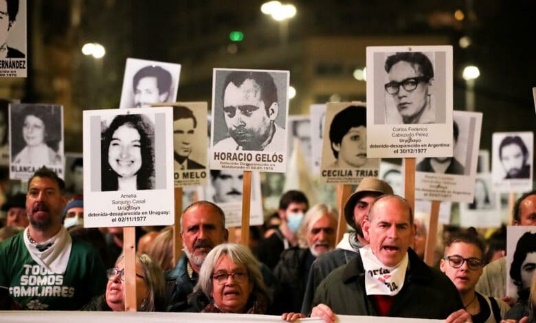 Uruguay rarely features in our newsletter, reflecting its relatively good human rights record in recent decades. However, June 27 marked the fiftieth anniversary of the beginning of the 1973 coup when President Juan Maria Bordaberry and the armed forces shut down parliament and inaugurated 12 years of state terror. While Bordaberry received a 30 year sentence, an “impunity law” effectively shielded police and military officers from accountability for the atrocities.
Uruguay rarely features in our newsletter, reflecting its relatively good human rights record in recent decades. However, June 27 marked the fiftieth anniversary of the beginning of the 1973 coup when President Juan Maria Bordaberry and the armed forces shut down parliament and inaugurated 12 years of state terror. While Bordaberry received a 30 year sentence, an “impunity law” effectively shielded police and military officers from accountability for the atrocities.
ARGENTINA
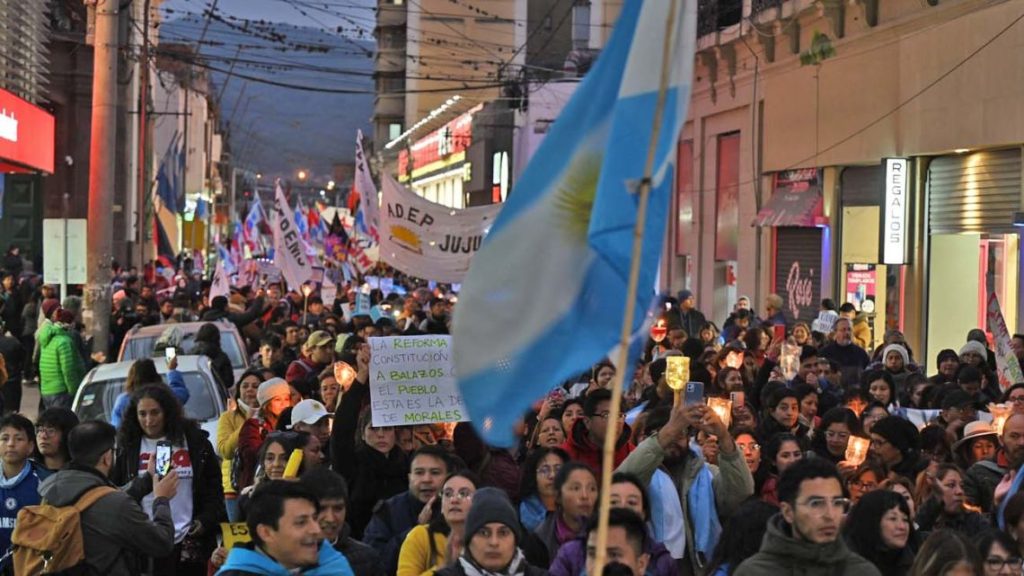
Amnesty International has called on the government of Jujuy Province in Northern Argentina to immediately cease the excessive use of force against those exercising their right to peaceful protest. This has resulted in hundreds of people being injured in the past two weeks. The protests have been against constitutional reform and for teachers’ salary demands Provincial police have responded by indiscriminately using rubber bullets, tear gas and physical violence against the population, especially against Indigenous people and campesinos (rural farm workers).
The constitutional reform that sparked the row expressly prohibits “street and road blockades, as well as any other disturbance of the right to free movement of persons and the improper occupation of public buildings in the province,” definitions that critics say puts limits on the right to protest.
As we mentioned in the April newsletter, an aircraft used on “death flights”, during which detainees were tossed from great heights alive into the sea, had been tracked down in the USA. These flights are known to have been routine during Argentina’s 1976-83 military dictatorship; thousands are known to have perished. The return of the Skyvan PA-51 last week was given much coverage in the media.
Relatives of the dictatorship’s victims were on hand to witness the plane’s arrival. “It is too horrifying to imagine my mother there,” said Mabel Careaga. Her mothers died in December 1977 on a journey documented in this Guardian article.
CHILE
The Expert Commission’s preliminary draft of Chile’s proposed new constitution faces opposition from the Chilean Human Rights Commission. They say the draft shows little progress over the existing constitution, and represents “a serious setback in Human Rights for our country.” Chile still has a constitution inherited from the Pinochet dictatorship, with an ultra-liberal economic model. In the September 2022 the first rewrite of the constitution was rejected by 62% of those who voted in a referendum.
The current constitution does not acknowledge Chile’s indigenous population. President Gabriel Boric has just set up a “Commission for Peace and Understanding” to try and resolve the long-standing intercultural conflict between the Chilean State and the Mapuche people. The Mapuche are the largest indigenous group in South America and make up around 12% of the population of Chile. One of their main demands is the return of ancestral lands to the indigenous people.
 Verónica Vilches, one of the Woman Water Defenders, thanks everyone who sent her birthday wishes last week. The message above translates as “Humbly thank you from all my heart, thank you for the present”
Verónica Vilches, one of the Woman Water Defenders, thanks everyone who sent her birthday wishes last week. The message above translates as “Humbly thank you from all my heart, thank you for the present”
All the best,
South America Team – Richard Crosfield (Colombia and Brazil), David Rogers (Argentina and Chile), James Baird (Venezuela) and Graham Minter (rest of South America). And please don’t forget that you can follow us on our Facebook page and Twitter.